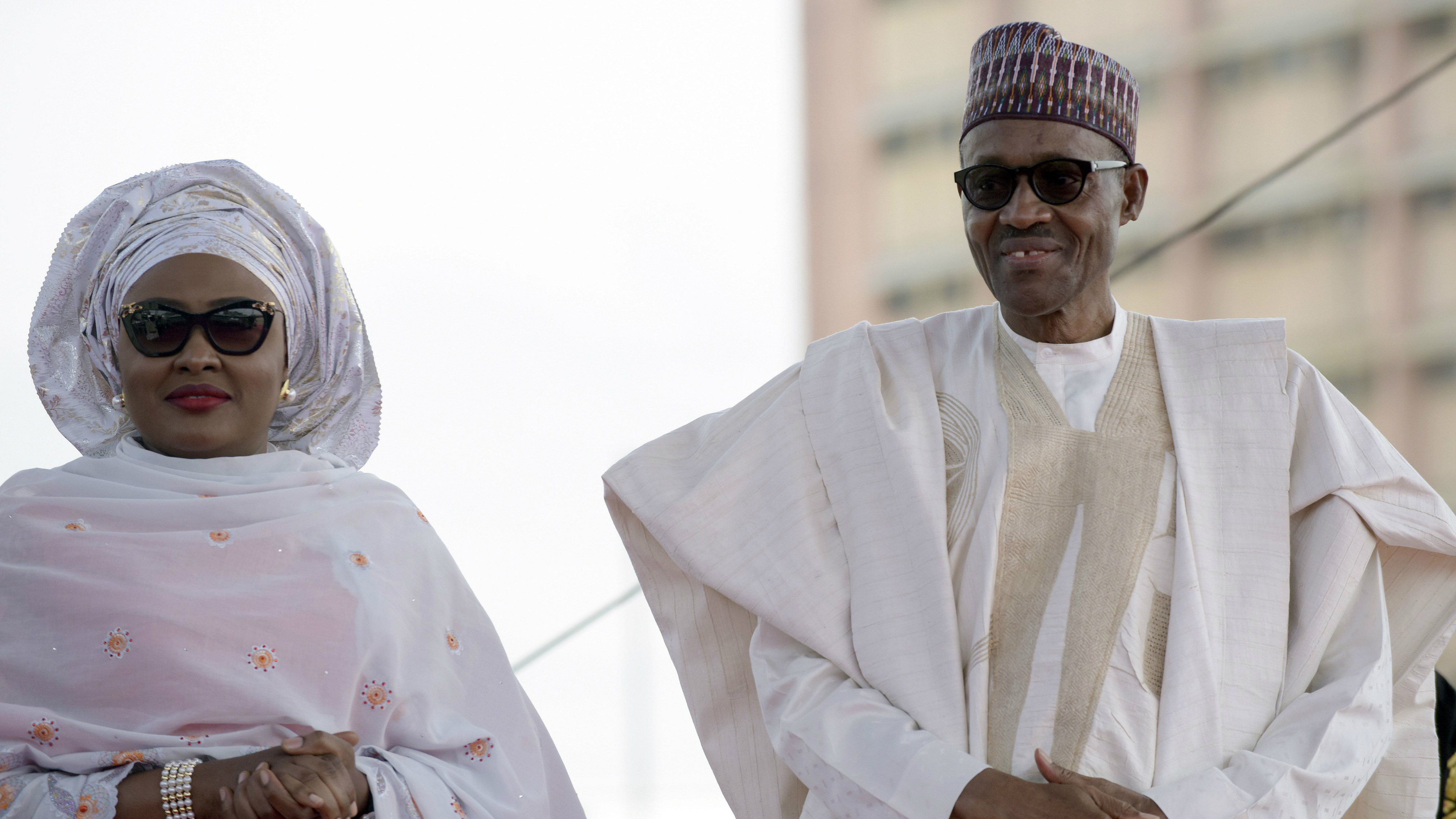Nigeria's First Lady issues warning to the President
Aisha Buhari vows not to vote for husband Muhammadu's re-election unless he takes control of his government

A free daily email with the biggest news stories of the day – and the best features from TheWeek.com
You are now subscribed
Your newsletter sign-up was successful
Aisha Buhari, the First Lady of Nigeria, has warned her husband she may not support him at the next election unless he shakes up his government.
Speaking to the BBC, Buhari alleged that her husband, Muhammadu, who became president last year, "does not know" most of the top officials who have been appointed.
She also claimed the government had been hijacked and that a "few people" were behind presidential appointments, giving posts to people who did not share the vision of the ruling All Progressives Congress.
The Week
Escape your echo chamber. Get the facts behind the news, plus analysis from multiple perspectives.

Sign up for The Week's Free Newsletters
From our morning news briefing to a weekly Good News Newsletter, get the best of The Week delivered directly to your inbox.
From our morning news briefing to a weekly Good News Newsletter, get the best of The Week delivered directly to your inbox.
Muhammadu Buhari came to power following a campaign in which he promised to tackle corruption and nepotism in government. "I belong to nobody and belong to everybody," he said during his inauguration.
However, his wife told the broadcaster: "The President does not know 45 out of 50, for example, of the people he appointed and I don't know them either, despite being his wife of 27 years."
She refused to identify those who she claimed had hijacked the government, but said: "You will know them if you watch television."
As to whether her husband was in charge: "That is left for the people to decide," she said.
A free daily email with the biggest news stories of the day – and the best features from TheWeek.com
Muhammadu Buhari has not yet decided whether he will stand in the next election in 2019, but his wife said she that unless things change, "I will not go out and campaign again and ask any woman to vote like I did before - I will never do it again".
The President reportedly sent a letter to the BBC's bureau in Abuja asking the agency not to air the interview.
-
 Political cartoons for February 16
Political cartoons for February 16Cartoons Monday’s political cartoons include President's Day, a valentine from the Epstein files, and more
-
 Regent Hong Kong: a tranquil haven with a prime waterfront spot
Regent Hong Kong: a tranquil haven with a prime waterfront spotThe Week Recommends The trendy hotel recently underwent an extensive two-year revamp
-
 The problem with diagnosing profound autism
The problem with diagnosing profound autismThe Explainer Experts are reconsidering the idea of autism as a spectrum, which could impact diagnoses and policy making for the condition
-
 Epstein files topple law CEO, roil UK government
Epstein files topple law CEO, roil UK governmentSpeed Read Peter Mandelson, Britain’s former ambassador to the US, is caught up in the scandal
-
 Iran and US prepare to meet after skirmishes
Iran and US prepare to meet after skirmishesSpeed Read The incident comes amid heightened tensions in the Middle East
-
 Israel retrieves final hostage’s body from Gaza
Israel retrieves final hostage’s body from GazaSpeed Read The 24-year-old police officer was killed during the initial Hamas attack
-
 China’s Xi targets top general in growing purge
China’s Xi targets top general in growing purgeSpeed Read Zhang Youxia is being investigated over ‘grave violations’ of the law
-
 Panama and Canada are negotiating over a crucial copper mine
Panama and Canada are negotiating over a crucial copper mineIn the Spotlight Panama is set to make a final decision on the mine this summer
-
 Why Greenland’s natural resources are nearly impossible to mine
Why Greenland’s natural resources are nearly impossible to mineThe Explainer The country’s natural landscape makes the task extremely difficult
-
 Iran cuts internet as protests escalate
Iran cuts internet as protests escalateSpeed Reada Government buildings across the country have been set on fire
-
 US nabs ‘shadow’ tanker claimed by Russia
US nabs ‘shadow’ tanker claimed by RussiaSpeed Read The ship was one of two vessels seized by the US military